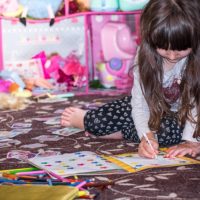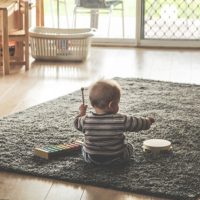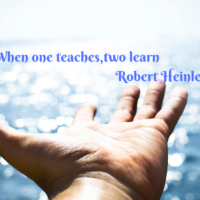Please note that this post may contain affiliate links and any sales made through such links will reward me a small commission – at no extra cost for you. PLEASE READ MY DISCLOSURE FOR MORE INFO.
Do you feel challenged and worried about your child’s focus and attention span during a daily routine or play?
Whether your preschool child is typically developing or has special needs, focus and concentration are important skills You want to work on with your preschooler.
The 7 proven effective strategies I share in this post, will greatly help you to increase your preschool child’s focus and attention span. It is important to use them consistently and part of your daily routine.

1.Set Developmentally Appropriate Expectations
Generally, it is good to remind ourselves that focus and concentration for a preschool child is less than 15 minutes, even less for a younger preschooler.However,these are just general guidelines, as every child is unique in their strengths, needs and acquired skills.
To set an appropriate developmental expectation for your child, observe where is he/she currently, in her/his focus and start to build from there. For instance, if the focus is 3 minutes on a favourite activity, then,gradually increase this duration.
2. Environmental adaptations to assist children in increasing focus and attention
For full detail information on this topic, please see my post 8 Effective Environmental Adaptations You can make today to dramatically increase your preschooler ‘s focus and learning
- Reduce the number of toys/activities to a few on each category (blocks, puzzles, books,..) and organize them in small bins with a lid ( add a label with the name and picture, if possible)
- Use rotation of toys to keep the motivation and reduce boredom ( put them away for a week or more)
- Select developmentally appropriate toys and activities – they may avoid playing with activities that are too challenging or get bored if they are to easy to master. For example, a child masters 9 pieces of knobbed puzzle and now gets easily bored. Try a 2-6 pieces jigsaw puzzle that is more challenging and requires good focus and concentration.
3.Reduce TV screen time
There is a lot of research and evidence that TV screen time affects young children learning, focus and behaviour.
A study from Children’s Hospital and Regional Medical Center in Seattle shows that each hour of television watched per day at ages 1-3 increases the risk of attention problems, such as ADHD, by almost 10 percent at age. https://www.sciencedaily.com/releases/2004/04/040406090140.htm
It is important to be consistent when making this change. If your child has a hard time when you turn the TV off, read these TIPS:
Reduce TV time to short (5-15 min) sessions during the day and may use a timer to indicate ending. Your child will soon learn to cope well with the TV turned off, as your behaviour is always consistent and you follow through with what you say.

4. Daily, incorporate focused Table Time Activities
It is important to teach children to sit at the child’s size table and focus, complete a task, daily.
Preschool years are the best time to gradually teach this skill; it will greatly help you child with homework focus, later, in school.
If your younger preschooler child is still using a high chair with a tray on, or a high chair at the dining table, it is fine as a start.
Keeping your child sitting at the table even for a short time can be a VERY challenging task for some parents. Does it happen to you, as well?
Here are some strategies on how to accomplish this goal and maximize focus
- place the child’s size table and chair in a private corner of the room or a quiet space away from all distractions (maybe a bedroom)
- if the table is in the playroom, place your child, facing the wall, away from toys to reduce visual distractions
- Make table sitting -for a short time – a part of your child’s daily routine (could be after ending a meal or snack) Embedding learning into the daily routines is the most EFFECTIVE model of Early Intervention because routines are functional, consistent and repetitive. See my post“How to use Daily Routines to dramatically increase communication for your non-verbal preschooler
- Start small and gradually build more focus time; for example, if your child never sits, even for meals, then your first goal is to SIT for up to 1 minute as an example…how you do that???
- Collect a number of HIGHLY rewarding items (small pieces of a favourite snack or treat) or a favourite toy/activity and put them aside to be used only for working on this goal ( in order to be highly motivating)
Use of visuals such as First /Then board to clearly communicate your child the expectation for instance: “FIRST cars matching game, THEN stickers where FIRST is the Non-favourite activity and THEN is the reward or favourite activity.
This strategy is very important as it helps a child to learn tasks that are not motivating for him or her by giving an immediate reward afterwards

5. Use focus close-ended activities
Closed-ended activities are activities that have a clear beginning and end; these activities stimulate focus, concentration in order to complete a task, learn new skills and improve in their development.
Examples:
- matching games (shapes, colours, numbers, animals…) or memory games
- puzzles
- pegboards
- sorting game
- for older preschoolers -simple board games
- patterns, sequence games and many more
Laminated activities are a great way to facilitate a variety of skills for preschool children
Check my Etsy shop for preschool focus learning activity ideas
Please know that any activity can be adapted into a closed-ended one, when we set a time limit(or other adaptation), using a timer (effective for preschoolers)
Colouring on a book is an open-ended activity because it does not have a clear ending expectation; however, you can use a timer and tell your child “colouring for 2 minutes: when timer goes OFF, is done”.As a result, you made this activity closed-ended.

6. Use Your child’s Interests as a foundation for building focus
It well documented that children learn faster and more effective when they are MOTIVATED; It is very important that you use these interests in building focus and other skills; HOW DO I DO THAT?
- If your child likes cars, creating/using activities using cars would be
a great way to help him focus; cars matching activity (such as the one posted above)
or sorting cars by colour, car stickers to peel and stick…..are a few examples of activities we can easily create ad engage your child to participate, have fun and increase focus as a bonus
- Another way to use your child interests is to use the First /Then strategy where First is the non-favourite task and THEN is the REWARD such as a favourite car for a few minutes (use a timer )
7. Break down a task as needed
The sequence of washing hands is a lot to handle for some preschool children and some children with special needs.
Using a handwashing visual is a great way for children to see the steps involved and follow easier ;
-Use forward or backward chaining is a great way to help your child learn more difficult skills, especially for self-help skills such as dressing, toileting…check this post on backward chaining for handwashing taskhttps://difflearn.wordpress.com/2011/07/20/backward-chaining-procedure-and-hand-washing/

Conclusion
Whether you are looking to increase your child focus during the daily routine tasks or want him/her to increase the ability to complete an activity from start to end, these 7 effective strategies will help to increase your preschool child’s focus and attention and therefore, learning of many skills.
Increasing focus and ability to concentrate for a child is a very important goal of learning and should start early, in preschool years, to lay a strong foundation for the school years.
Lastly, when looking at maximizing concentration and learning for your child, is vital to understand the connection between daily NUTRITION and HEALTH /LEARNING. Providing your young preschooler with healthy, natural foods and superfoods and reducing sugar and highly processed foods is very important to maintain a healthy body and mind.
Please note that this post may contain affiliate links and any sales made through such links will reward me a small commission – at no extra cost for you. PLEASE READ MY DISCLOSURE FOR MORE INFO.

These matching activities and the Preschool Rewards chart are great tools to stimulate focus and concentration in preschool children
Vehicles Patterns Game
see al in My Etsy Shop










How to Greatly Increase Your Precshool Child's Focus with these 7 proven Effective Strategies - Gift Guides
[…] Source by faithG20 […]